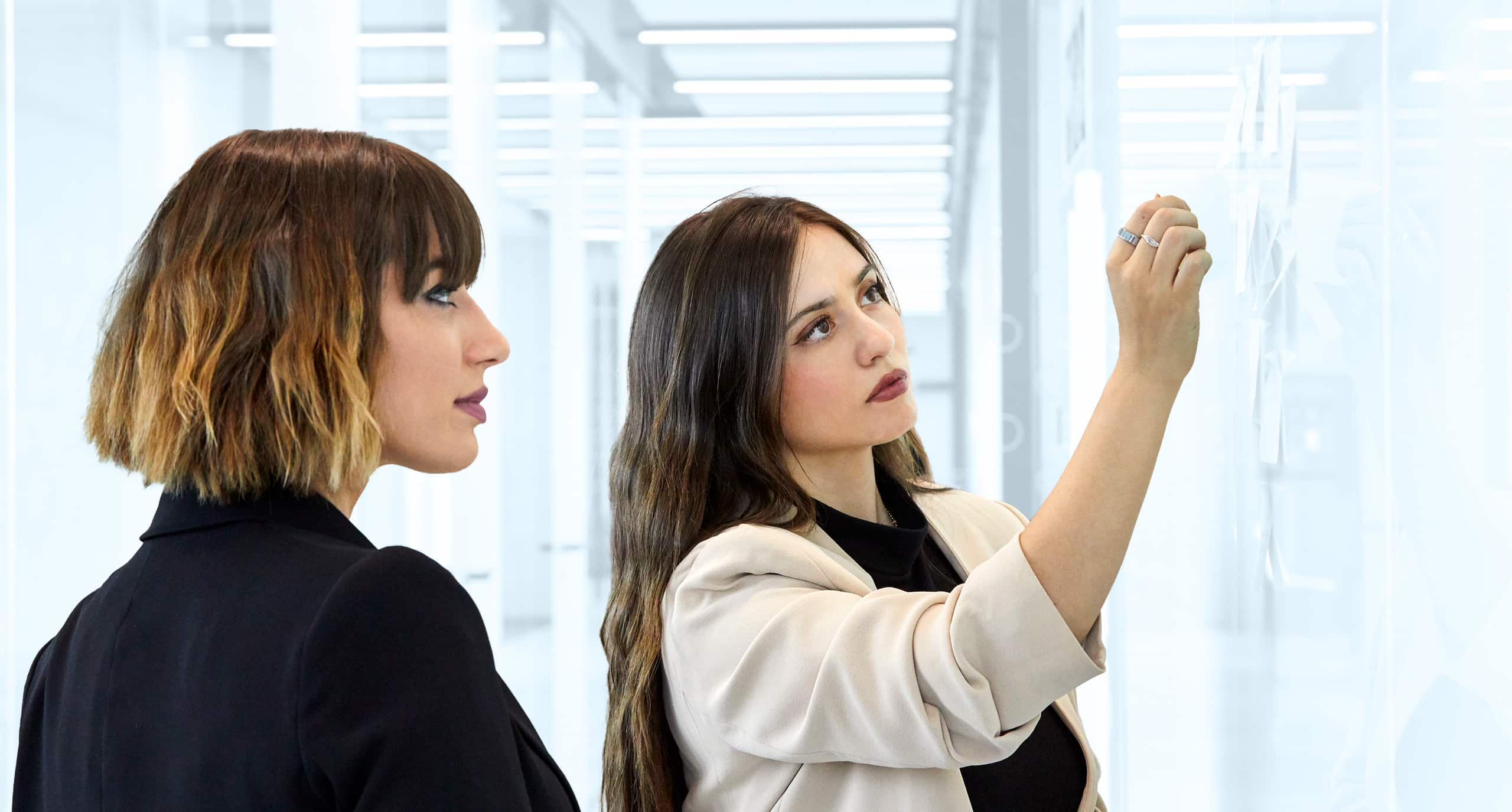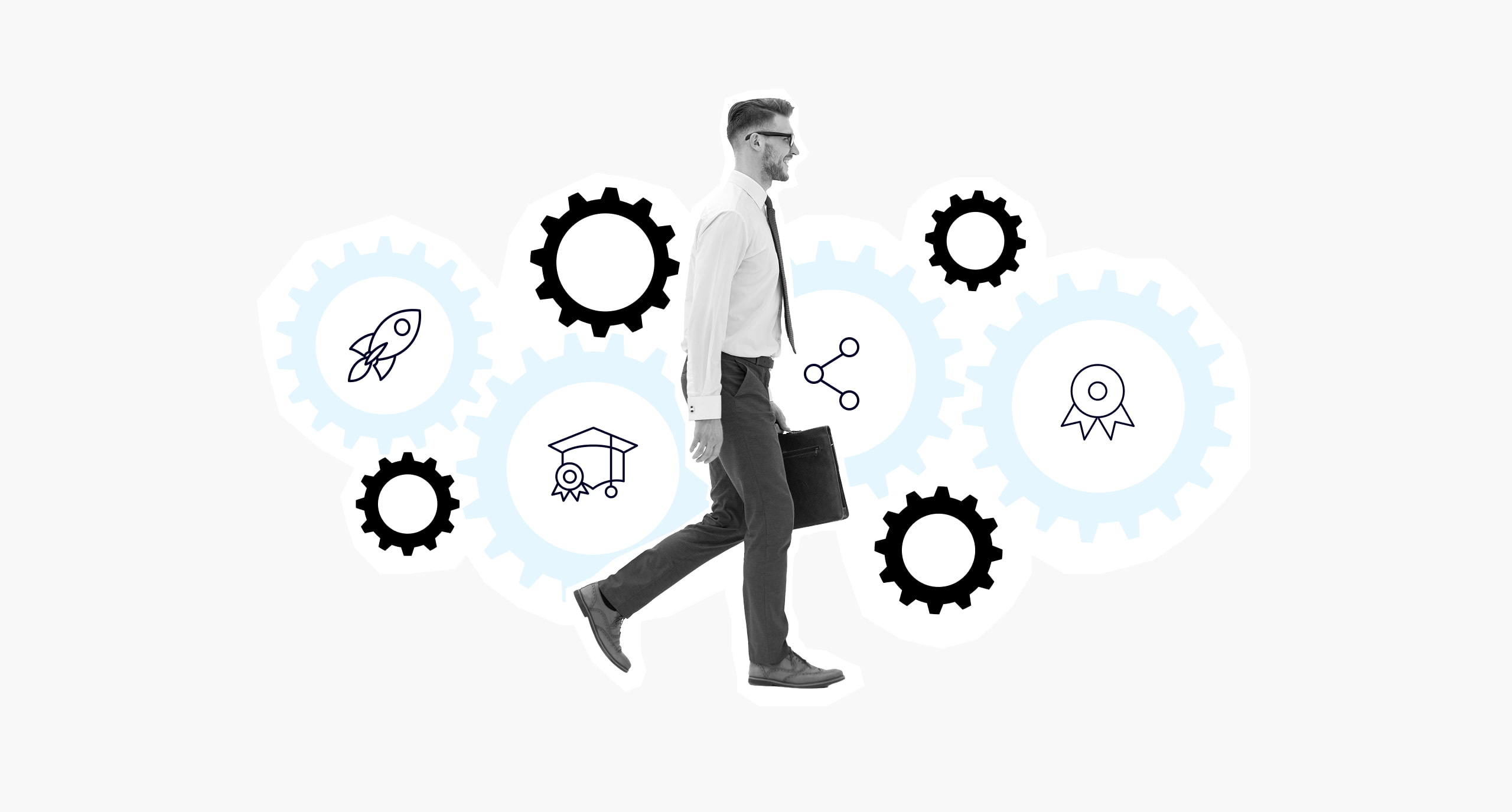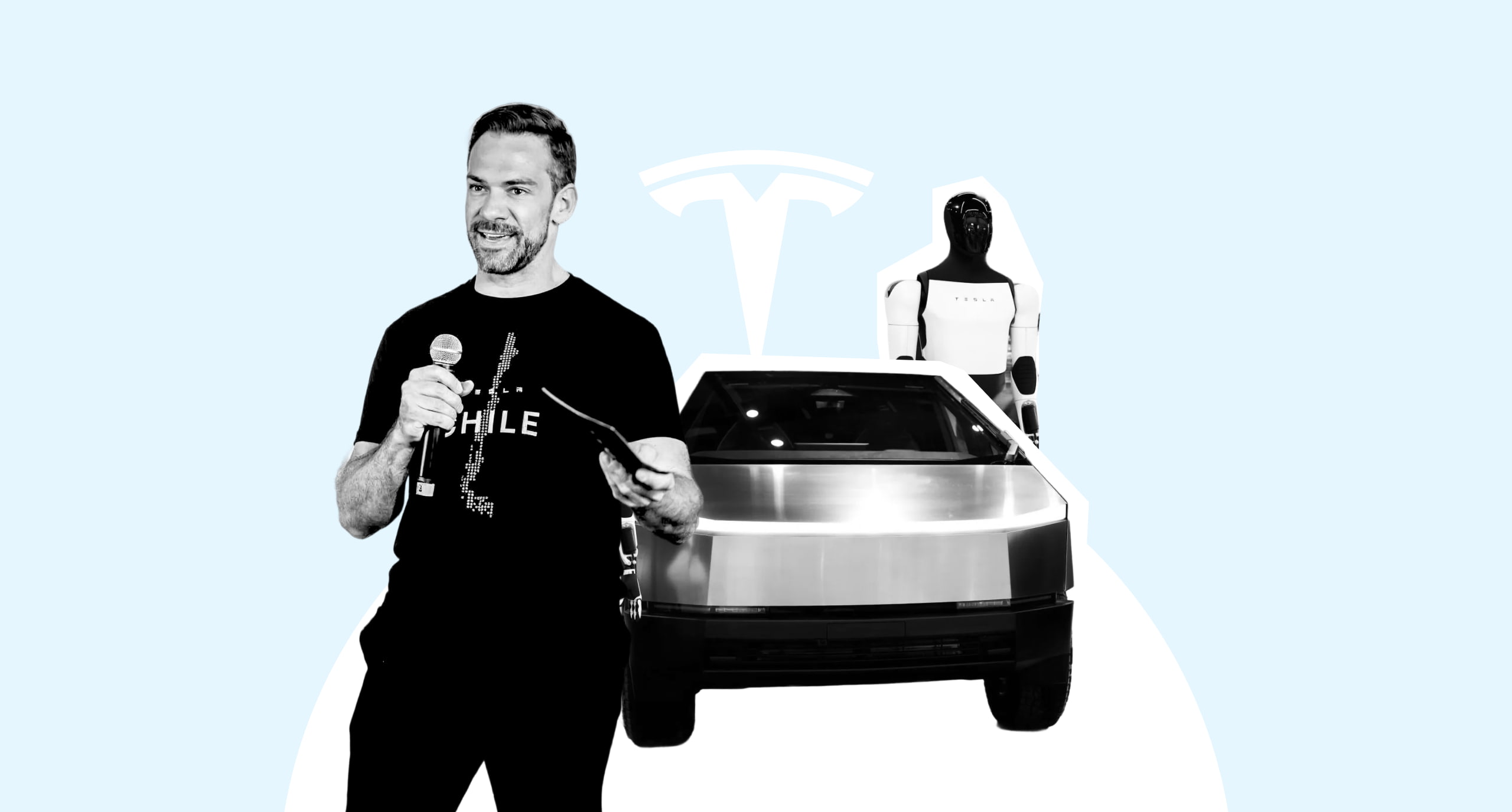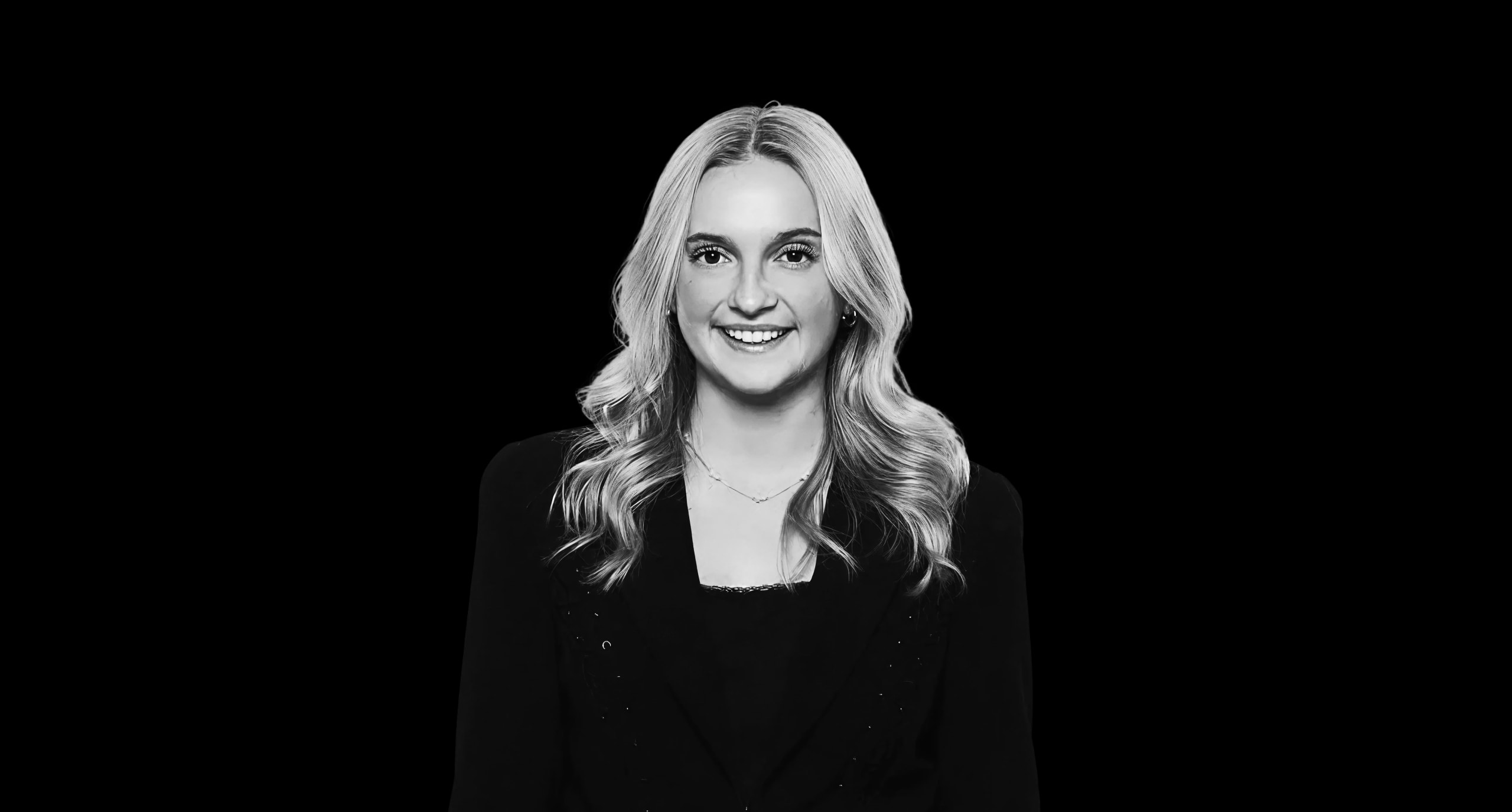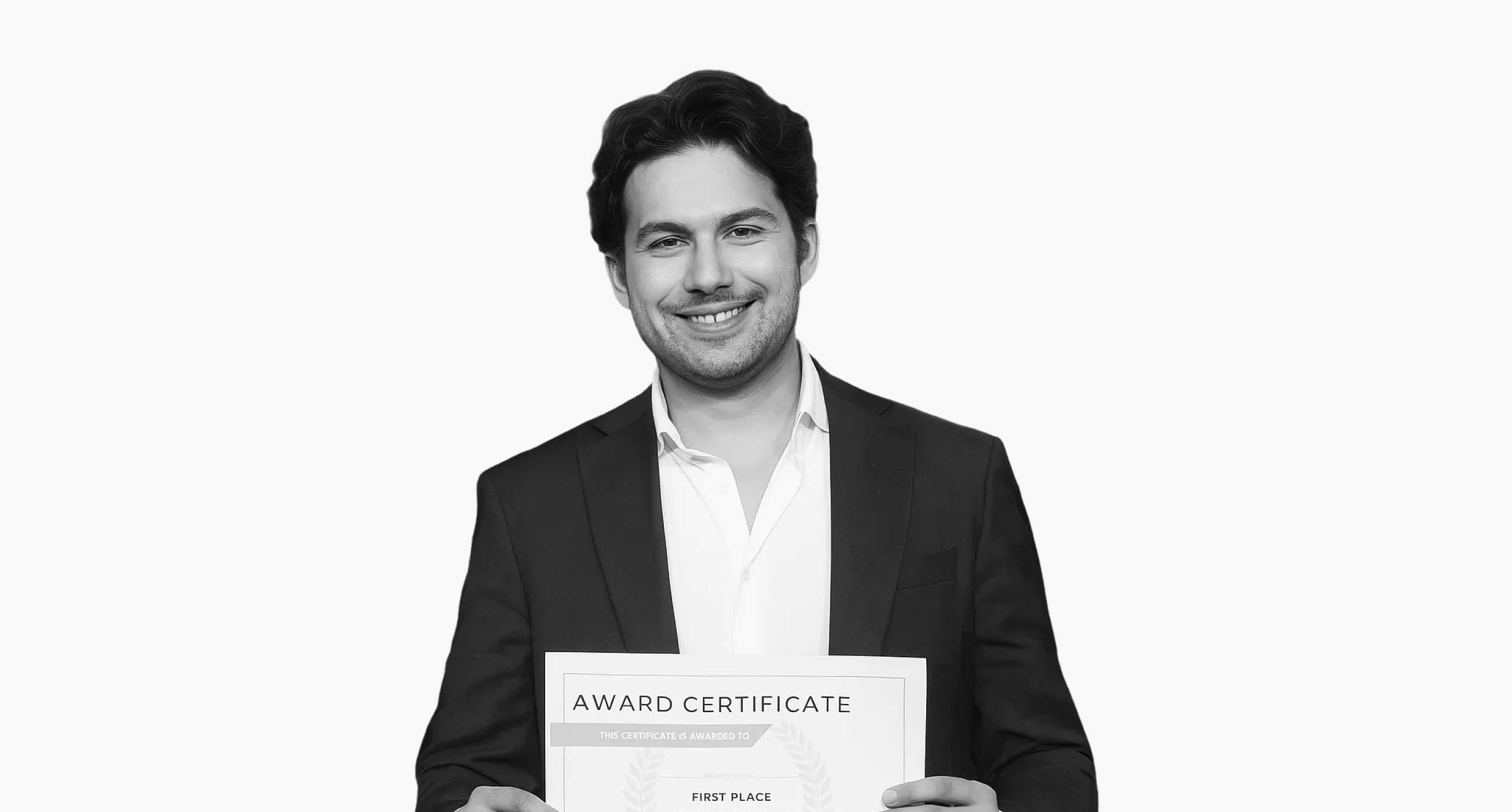Curiosity doesn’t kill cats—it defines them. Before my Digitas career, I had wandered through data and software engineering, project management, and leading creative storytellers. Curiosity was my compass. Each role added depth to my journey until I found my home in digital and marketing transformation—a space where curiosity fuels innovation and creates impact.
The innovative path towards a Digitas career
After quitting my previous job, I felt restless—bored and curious for new challenges. I earned a Google Data Engineer certificate, but it wasn’t enough. That’s when I discovered the Executive Master in Digital Transformation & Innovation Leadership. I was instantly hooked by its experiential nature. Beginning a new role at Publicis & Digitas was a bold gamble—I found balancing work and full-time education was no small feat. Thankfully, Digitas was incredibly supportive, which fueled my determination.
On day one, Maria Luisa Romero Toro, manager of the Data and Tech programs, warned us: “Pick two—study, network, or sleep.” By the end, I was running on fumes but proud to say I hacked the system with strategic power naps—living like a Hogwarts student cramming for O.W.L.s.
I took it upon myself to distill the program’s concepts during work, sharing insights with my internal team while applying them in real-time to my day-to-day tasks. It became a cycle of continuous learning and action, turning my work projects into a testing ground for academic theory.
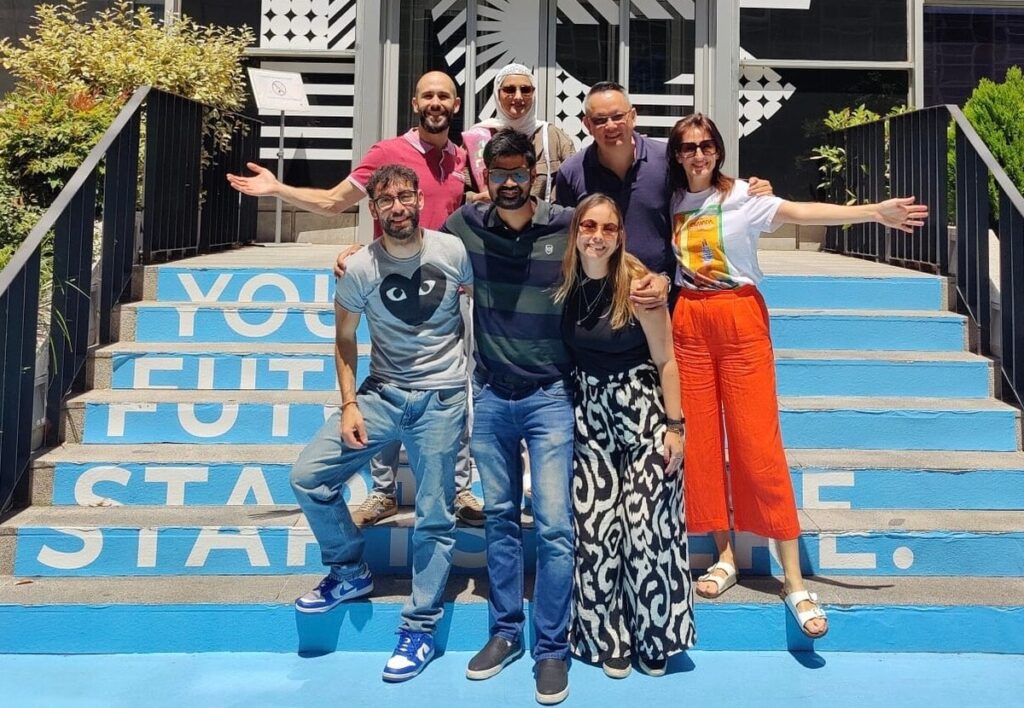
Studying the Executive Master in Digital Transformation and Innovation
I loved the experimental nature of the program—both in its organization and content. It was engineered around listening, adapting and adjusting. This perfectly mirrored the VUCA world we navigate daily. This spirit was championed by the one and only David Flores Chinchetru, our Associate Program Director, who made the experience as dynamic and agile as the world it prepared us for.
One standout experience was the Lab with Vice Dean of Business Tech Programs Manuel López Martín de Blas, which combined design thinking, lean start-up mentality and agility. I still draw on this material regularly. Prof. Rick Hilchner’s class on Operational Excellence and Digitalization was also transformative. We discussed a Dell case study, which I applied in a Digitas pitch that same week. The result? We won the account. Finally, I have to mention Prof. Miguel Torres De Miguel’s class on Strategies for Organizational Transformation, which shaped how I approach digital transformation. I still remember Miguel’s unofficial calling card from the cohort: “Show me the money!”
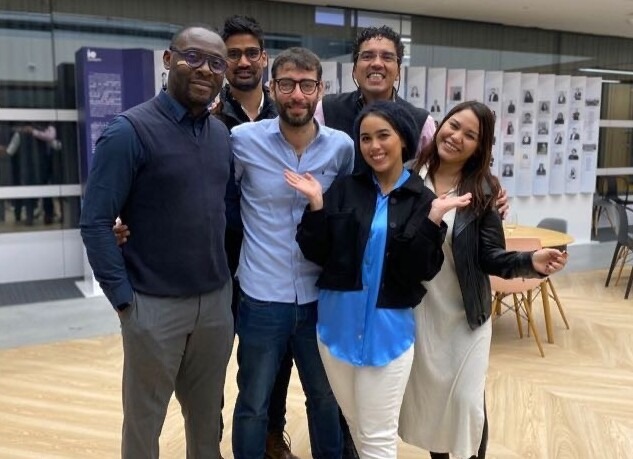
The program’s hybrid nature—combining in-person and online learning—offered the best of both worlds. We had incredible trips to Madrid and Dublin, but what truly stood out was the connection within our cohort.
I was blessed to be surrounded by brilliant minds, and the camaraderie was so strong that it didn’t matter whether we were face-to-face or online. The connections felt vivid and real, as if we’d known each other for years. There was a sense of anticipation before every reunion because we were already so close. We’d call each other for things entirely unrelated to university, and debates from the forums often spilled over into WhatsApp chats. The relationships we built have lasted far beyond the program—we’re still in regular contact. This level of networking and collaboration is a testament to IE’s ability to run an effective hybrid program. Even at a distance, it felt like we truly knew one another, and that made the experience unforgettable.
Find out more about the program’s Global Immersion Week in Dublin from our recent interview with graduate Chan Heng Hong.
Working at Digitas: career advice when assuming new strategic roles
First, stepping into a strategic role requires finding your purpose and creating a team story. I introduced “customer and employee obsession” as our ethos. This was inspired by the brilliant course on “digital business models” with Francisco Javier De Paz Lagar. And when I say customers, I mean A to C to C: agency to customers, to their customers.
Second, it’s not about measuring how the employees perform for the agency, or how the customers perform for a company (KPIs), but measuring how the companies perform for their customers and their employees (introducing customer or employee performance indicators). This was inspired by the “Innovation management” class with Prof. Ana Alonso Nuñumer.
Third, striking a balance between bureaucracy and agility through frameworks and cross-functional teams. I ensured that my team was cross-functional, serving many units in the company. This was inspired by Guillermo Tena Planas’ class, “Leading Digital Transformation”.
Fourth, implementing a skill-based organization. This is inspired by “High performing leadership” class with Prof. René Gessenich. And recruiting people who are better than you at certain tasks. Nurture strategists; don’t just recruit ready-made strategists—strategy today is a mosaic, built from the crumbs of diverse skills and experiences brought together with purpose. Anyone can be a strategist, if skill-based. It’s a state of mind and a POV.
And fifth, dedicating time to think and co-create frameworks with the team. I adapted so much from what we learned in Prof. Ruben Blanco Rodriguez in the “Digital Business and Tech Strategy” class.
The personal side of innovation leadership at IE Business School
An unexpected blessing was the courses that delved deeply into personality. These included “Leading with impact” with Prof. Alicia Herrera Martínez-Piñeiro and Bárbara Fernández Gutiérrez, and Positive Psychology with prof. Declan Noone, with both exploring leadership and well-being. At first, I wasn’t sure I was ready to confront my sense of self so openly during the program, by digging into personal well-being and how it intersects with leadership. It was challenging and pushed us into tough discussions about who we are as leaders.
Leadership isn’t just about guiding others; it’s also about managing your own well-being under intense psychological pressure. Josh Bersin goes as far as saying that leaders need to learn how to identify stress within ourselves and the people we work with. We must spot mental unease and find ways to reduce it.
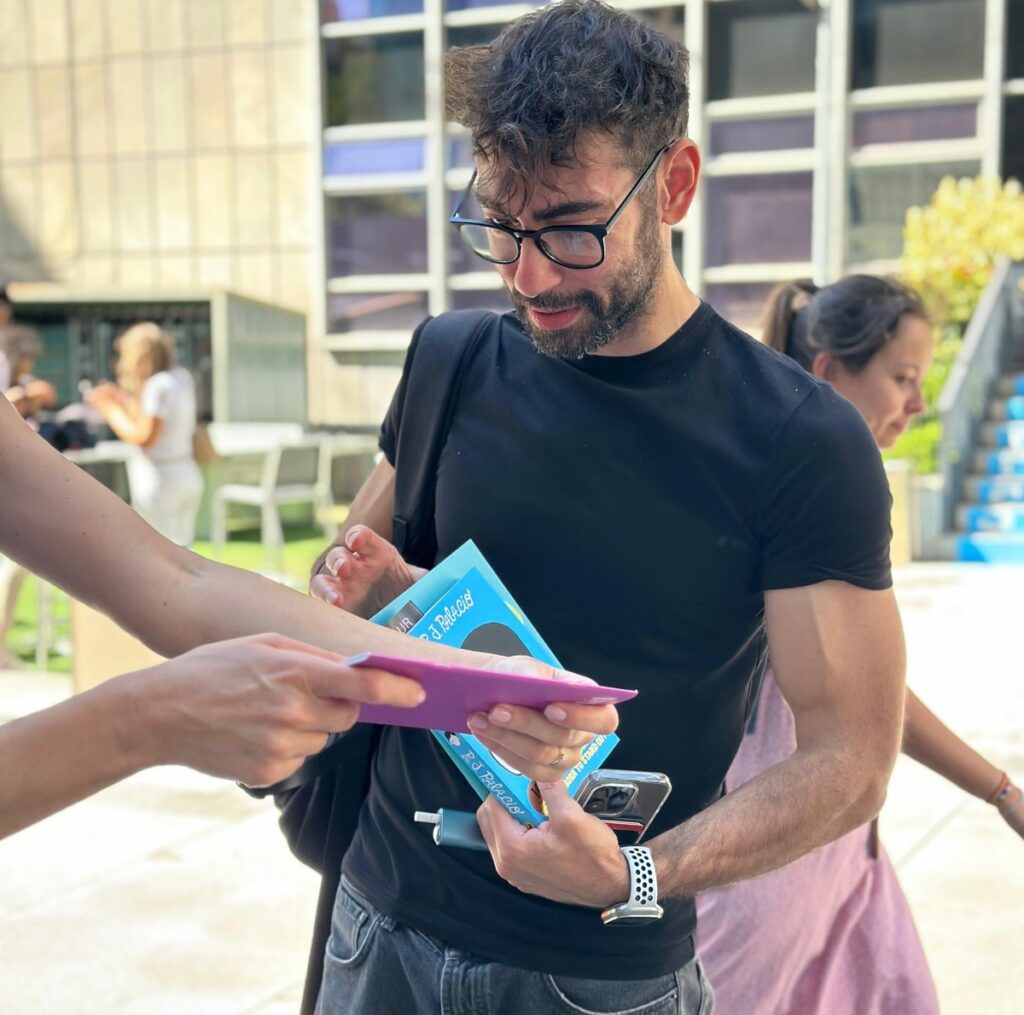
We also had classes that touched on Personal Branding (with Prof. Patricia Magdalena Anda) and how to communicate (with Prof. Neringa Kalpokas Matulaityte). Despite my initial apprehension, I now carry all of these learnings with me. I must admit I never really thought about the importance of branding myself. Now I know self-knowledge is a priority in leadership.
Getting ROI from one of the best masters in innovation
My advice to anybody joining this program is to absorb all the knowledge. But deep-dive into/extrapolate all the verticals you’re interested in. Remember you’re investing in a year—do so fully. And experiment! You’re given amazing psychological safety to let go, which allows you to play and think—that’s where the ROI is. Test yourself. Because, honestly, I discovered and developed a lot of skills which aren’t necessarily related to what I do professionally.
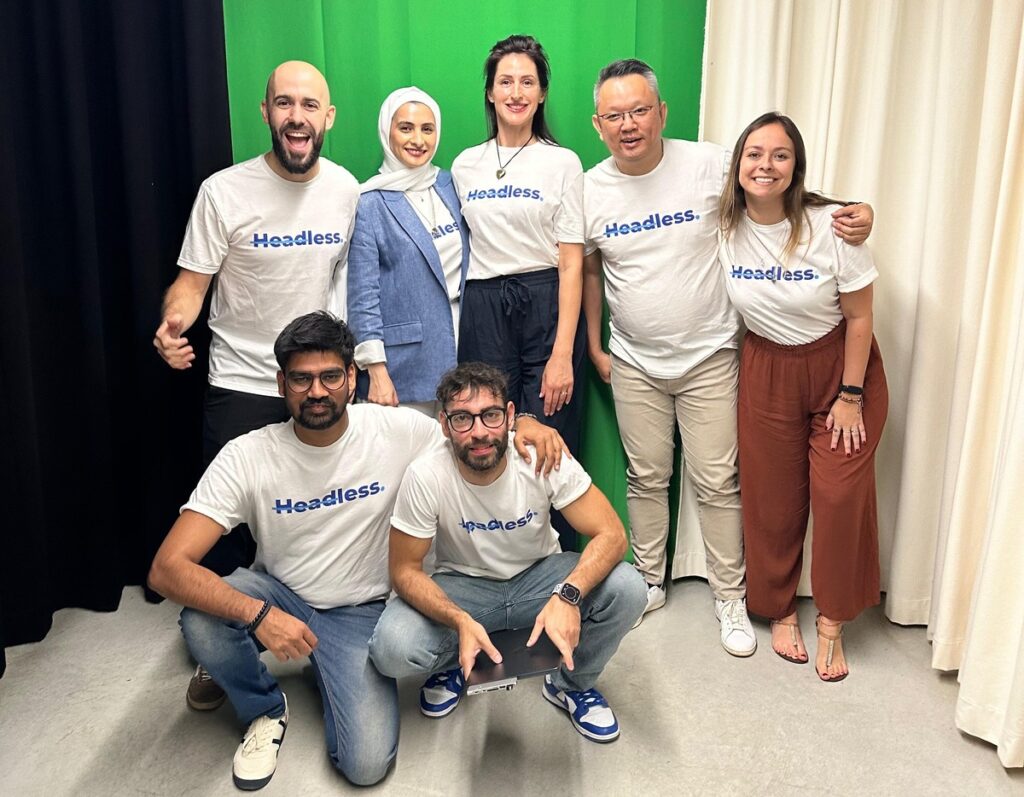
For example, with our team “Headless” we developed a real smart contract for the blockchain class (with Prof. Manoel Fernando Gadi Alonso), which wasn’t required work. We also developed an AI POC and generative AI videos for the capstone project (with Prof. Alberto Torres Filgueiras) and a full digital strategy (inspired by Prof. Jose Maria Cuellar Del Rio). We also created full immersive VR spaces along with my other team, Hogwarts (With the support of Gema Molero Gonzalez).
Studying at IE Business School
IE is all about critical thinking, challenging assumptions and creating a safe psychological space. I take that mentality and apply it into where I work, and we’ve seen it produce great outcomes.
The main thing I like about IE is the mantra: become the Next Best You. You don’t really understand it at the beginning. When you graduate, you do. You have to be yourself, but keep developing new increments and iterations of that person for as long as you breathe, with big transformative leaps whenever needed. It’s not about avoiding mistakes but growing through the failures you or your team encounter. Now I know I have to be as agile as the crazy world we live in. I try to find increments and iterations of myself every day.
Always be a work in progress and mirror the world we live in. You need to adapt to empower those around you. Because change is disruptive—and you need to lead it.
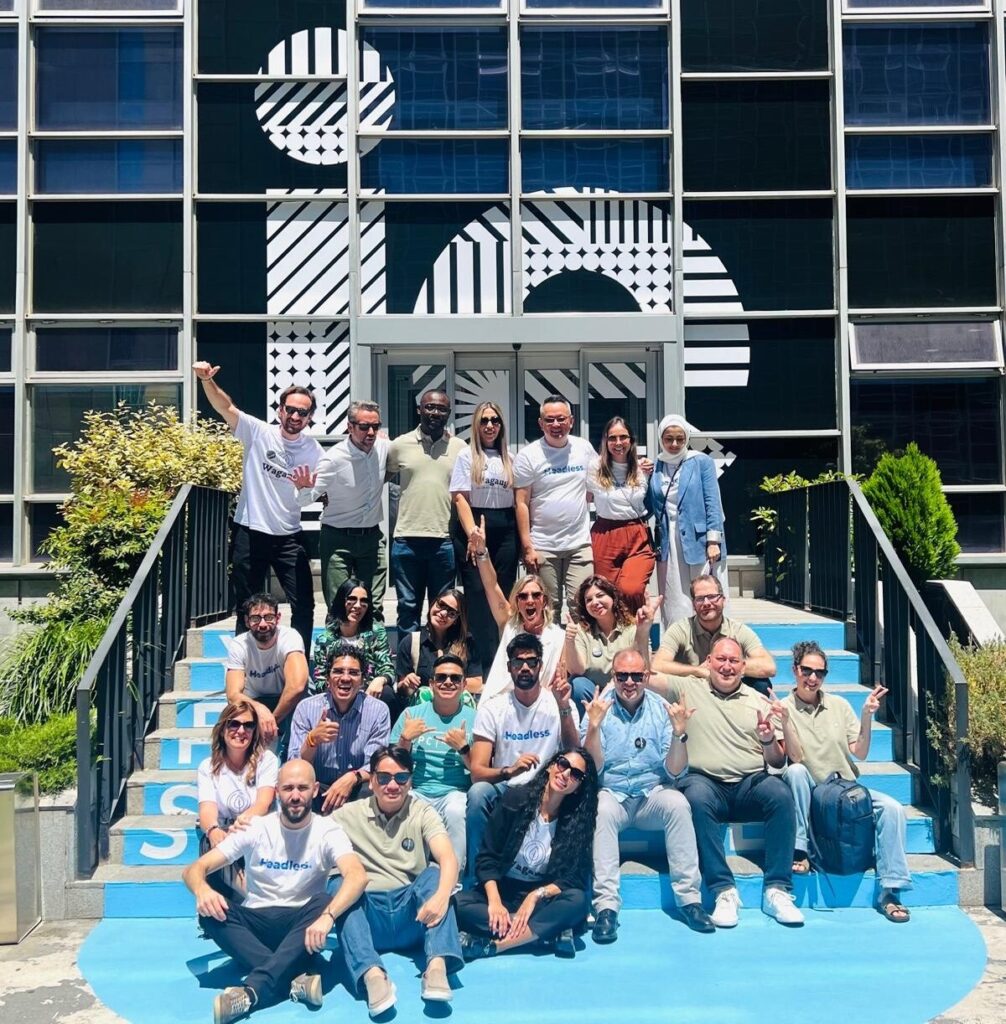
Discover more Digitas career opportunities at Publicis when you study with IE Business School
Find out how the Executive Master in Digital Transformation & Innovation Leadership can revolutionize your career path.

Benjamin is the editor of Uncover IE. His writing is featured in the LAMDA Verse and Prose Anthology Vol. 19, The Primer and Moonflake Press. Benjamin provided translation for “FalseStuff: La Muerte de las Musas”, winner of Best Theatre Show at the Max Awards 2024.
Benjamin was shortlisted for the Bristol Old Vic Open Sessions 2016 and the Alpine Fellowship Writing Prize 2023.

